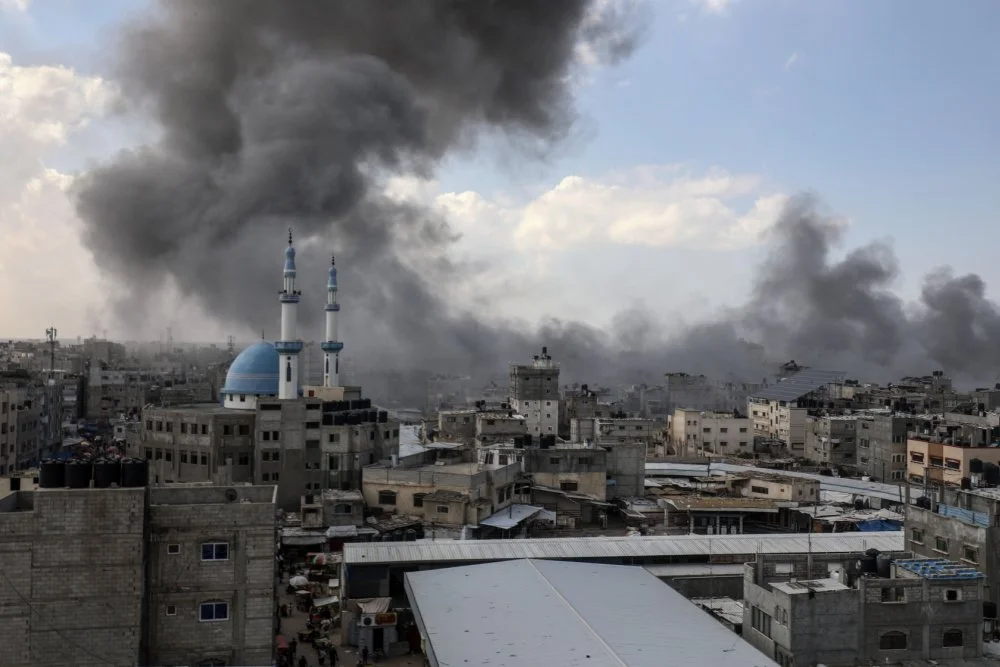A 2020 Resolution for Peace and Security Funders
/One of the most important New Year’s resolutions that funders can adopt in 2020 is to make our sector more equitable, more inclusive and more diverse, starting with our own institutions. Study after study shows that diverse teams make better decisions; that they are more innovative; and that they are simply smarter. In the case of philanthropy, funders that embody principles of diversity, equity, and inclusion (DEI) in their organizational culture and operations are not only better citizens of the nonprofit world, they are more effective.
This is especially true for peace and security funders. Most, if not all, conflict is rooted in real or perceived inequity. Economic, political, and ethnic inequities (among others) have fueled many of the wars, human rights abuses, migration crises, and invasive security policies that plague the world today. It should come as no surprise, then, that research shows peace processes that emphasize inclusion result in more effective negotiations and are 64 percent less likely to fail. For example, a study investigating 82 peace agreements in 42 armed conflicts between 1989 and 2011 found that peace agreements with women signatories are associated with durable peace. Addressing DEI is critical to addressing the root causes of conflict, and as such, important for funders of peace and security work.
Funders of peace and security work cannot tackle injustices in the world at large unless we first acknowledge and seek to redress echoes of the same injustices in ourselves. For peace and security funders, taking DEI seriously means more than strengthening our philanthropic decision-making and creativity. It means practicing the solutions that we preach to become more inclusive in our own institutions.
The coming of a new year marks the perfect opportunity for peace and security funders to make an explicit commitment to DEI and resolve to see it through. But even well-intentioned New Year’s resolutions go unfulfilled without a plan. Here are some concrete steps all funders can take to incorporate DEI into policies and practices:
Invest time and resources into doing DEI right. Hire DEI experts to conduct a baseline assessment of race, gender and power and design an institution-specific work plan to deepen and expand diversity, equity and inclusion. Engaging firms led by women and people of color not only gives you access to lived knowledge of the historical and contemporary impacts of systemic discrimination and exclusion in the sector, it's also a first step toward embodying DEI values. The Rockefeller Brothers Fund has engaged D.C.-based oneTILT to conduct an internal equity audit and engage staff in reading, conversation, and training on topics like microaggressions and implicit bias.
It’s important to provide staff members the time and resources to engage in learning around systemic oppression, power and privilege, as well as the space to discuss and process the information. The Peace and Security Funders Group maintains a curated and crowdsourced list of DEI resources, including many designed specifically for the philanthropic sector. Our trailblazing peers at the Annie E. Casey Foundation, W. K. Kellogg Foundation, and Ford Foundation have shared many ideas and resources. You can also consult your grantees to understand what DEI looks like in their context and invite their input on what more you—and they—could be doing to support diversity, equity and inclusion in the sector.
Change hiring practices and build a diverse pipeline. A diverse staff can help funders counteract some of the biases and fallacies that cause them to overlook tremendous opportunities, like women of color-led organizations that “are overrepresented in success at social change” and yet chronically underfunded. Changing job descriptions to focus on what’s truly necessary to do the job, posting job openings outside of “the usual suspects,” and blinding all applications are good—and relatively easy—first steps to increasing your candidate pool.
Build audiences for your work in historically underrepresented communities. Diversity is not just about representation; fundamentally, it is about equity and inclusion. Developing relationships with historically black colleges and universities and community colleges in your area may help create a pipeline for your candidate pool. Likewise, deeper engagement with student groups and community organizations may inspire new practitioners in the field, diversify academic thought and practical approaches to conflict, and cultivate future philanthropists committed to peace and security issues.
Look at your investments. Maintain a portfolio of mission-related investments that deliver social returns and financial ones, and begin to incorporate a DEI lens for these investments. There are myriad “social good” impact investment management firms and collaboratives of donors dedicated to social impact.
To build peace in an era of profound global interdependence, we must appreciate cultural differences, empathize with local struggles, and work to understand legacies of oppression. Only by bringing the broadest range of perspectives to the table can we build the knowledge, creativity and trust needed to address the complex problems that fuel violent conflict. In 2020, let’s resolve to take the first steps necessary on this journey of increasing diversity, equity and inclusion in the peace and security sector.
Stephen Heintz is the president of the Rockefeller Brothers Fund. Alexandra Toma is the executive director of the Peace and Security Funders Group, a network of 60 funders committed to collaboration on a range of peace and security issues.


















